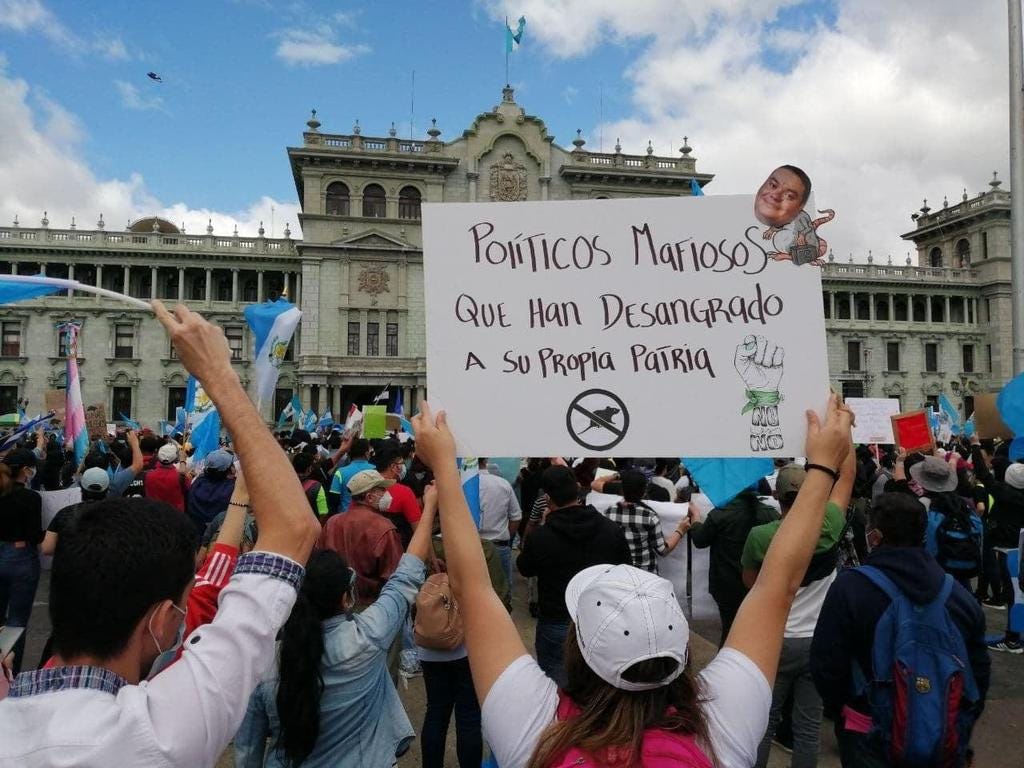Corrupt Guatemalan Prosecutor levels corruption charges against Colombian corruption investigators
AG office, currently under sanctions by much of the world for ties to organized crime, demands the arrest of two members of Petro's administration

Guatemala’s Prosecutor’s Office, in a message complete with flexing arm emojis and with an attached video of a prosecutor who has been sanctioned by the European Union and the United States, on Monday demanded the arrest and extradition of two members of Colombia’s government.
Curruchiche announced arrest warrants against Colombia's former Defense Minister, and current ambassador to the Vatican, Iván Velásquez Gómez, and Luz Adriana Camargo, the current Attorney General.
In the message, Guatemala claimed to have proof of the two functionaries' involvement in the crimes of “illicit association, obstruction of justice, influence peddling, and collusion” as part of corruption with the infamous Odebrecht scandal.
Curruchinche, in the video, said, “an alert has already been requested to Interpol”. According to the prosecutor, Velasquez headed a “criminal structure” that “favored the businessmen of the construction company Odebrecht, and caused the state of Guatemala to lose more than three billion quetzales (almost 400 million dollars).”
Look, we try really hard to be objective and professional in our news coverage here at PWS. We also strongly believe in reporting the important context that some of our English-speaking readers might not be aware of. So allow us to break the third wall a bit here and say the announcement by Guatemala merits a rather boisterous “lol.”
Velasquez, for years, led a United Nations-created and globally respected anti-corruption office in Guatemala alongside Camargo. His work led to successful convictions against ex-President Otto Perez Molina, his former vice president, seven ministers, and dozens of politicians and businessmen. Velasquez was declared persona non grata by then-President Jimmy Morales in 2017 and exiled from the country.
He arrested high-level businessmen for financial crimes — people from the richest families in Guatemala. People who, before Velasquez arrived, thought they were untouchable. And he made a lot of enemies along the way.
Eventually, however, the Guatemalan government, which for perhaps the first time in its history saw a serious challenge to its impunity, tried to press its own trumped-up charges against the U.N. investigators, a move which the U.N., the United States, and the European Union all strongly condemned.
The European Union at the time also sanctioned the attorney general of Guatemala, Consuelo Porras, and several of her subordinates, for “undermining the Central American country’s democracy.”
The Organized Crime and Corruption Reporting Project (OCCRP), in 2024, said that Guatemalan prosecutors, and Porras, were “key elements in undermining democracy and shielding organized crime from corruption investigations.”
Curruchiche is among the officials named in OCCRP investigations, as well as a target of sanctions from the international community.
The EU has repeatedly expressed its concern about “the continued misuse and instrumentalization of Guatemala's justice system,” an effort that has been spearheaded by the country’s Attorney General's Office.
Interpol will absolutely not enforce these warrants. No one besides Guatemala even recognizes them. Colombia, as it did the last time Guatemala tried this, does not recognize the warrant.
We feel it is important to point out at this point that PWS has often published stories that are highly critical of the government of Gustavo Petro, as well as of the president himself. It isn’t partisanship that motivates this story.
We simply believe that readers are best served by context that many other Latin American media companies seem to be overlooking for the moment. We hesitate to say they are doing this to harvest clicks, but, again, in the interest of objectivity, they are doing this to harvest clicks.
The story is newsworthy, however. It is the latest clear sign that the justice system in Guatemala does not exist to protect the people. Rather, it has long been an instrument to protect the ruling class, and used as a weapon to destroy, exile, or imprison anyone who stands against them and presents a serious threat.
You can also donate a one-time gift via “Buy Me a Coffee”. It only takes a few moments, and you can do so here.
Thanks for reading, and hasta pronto, piratas!


